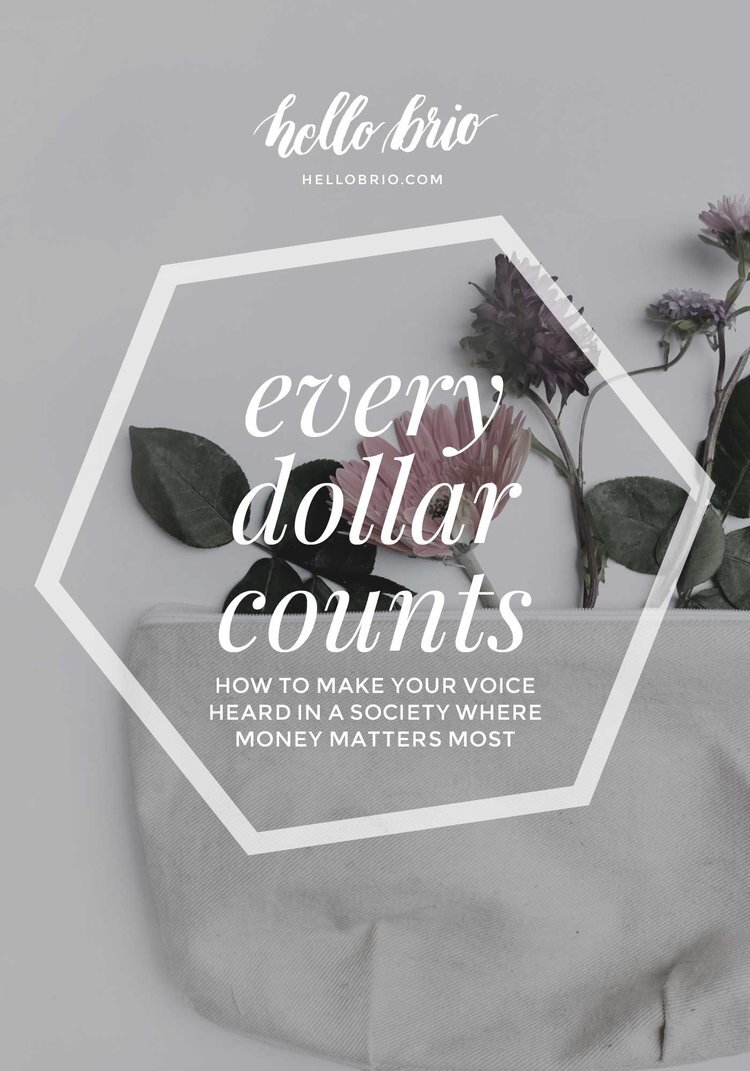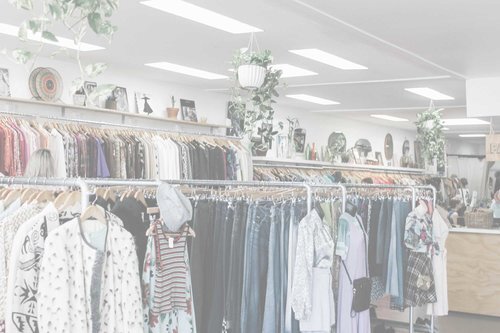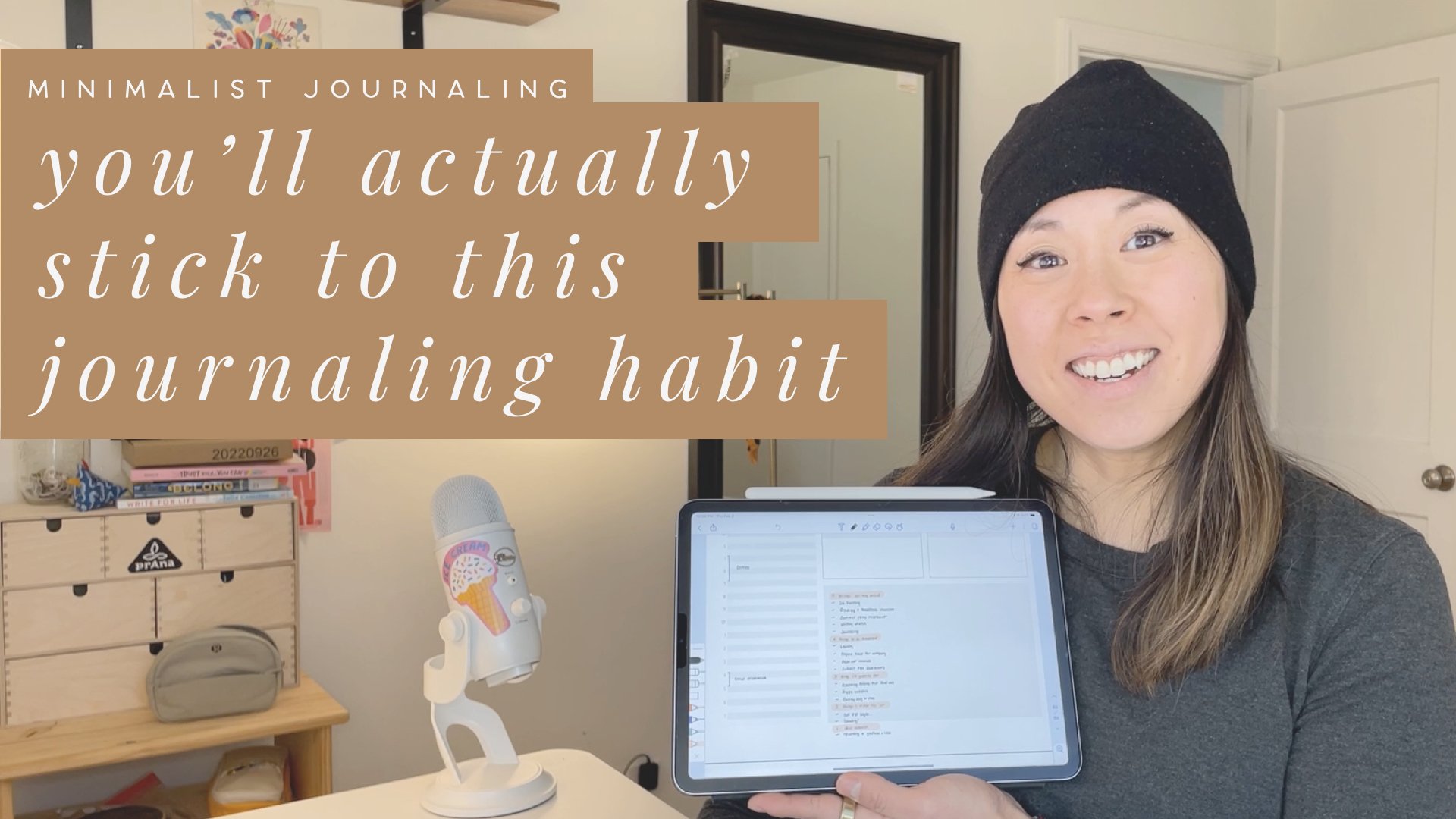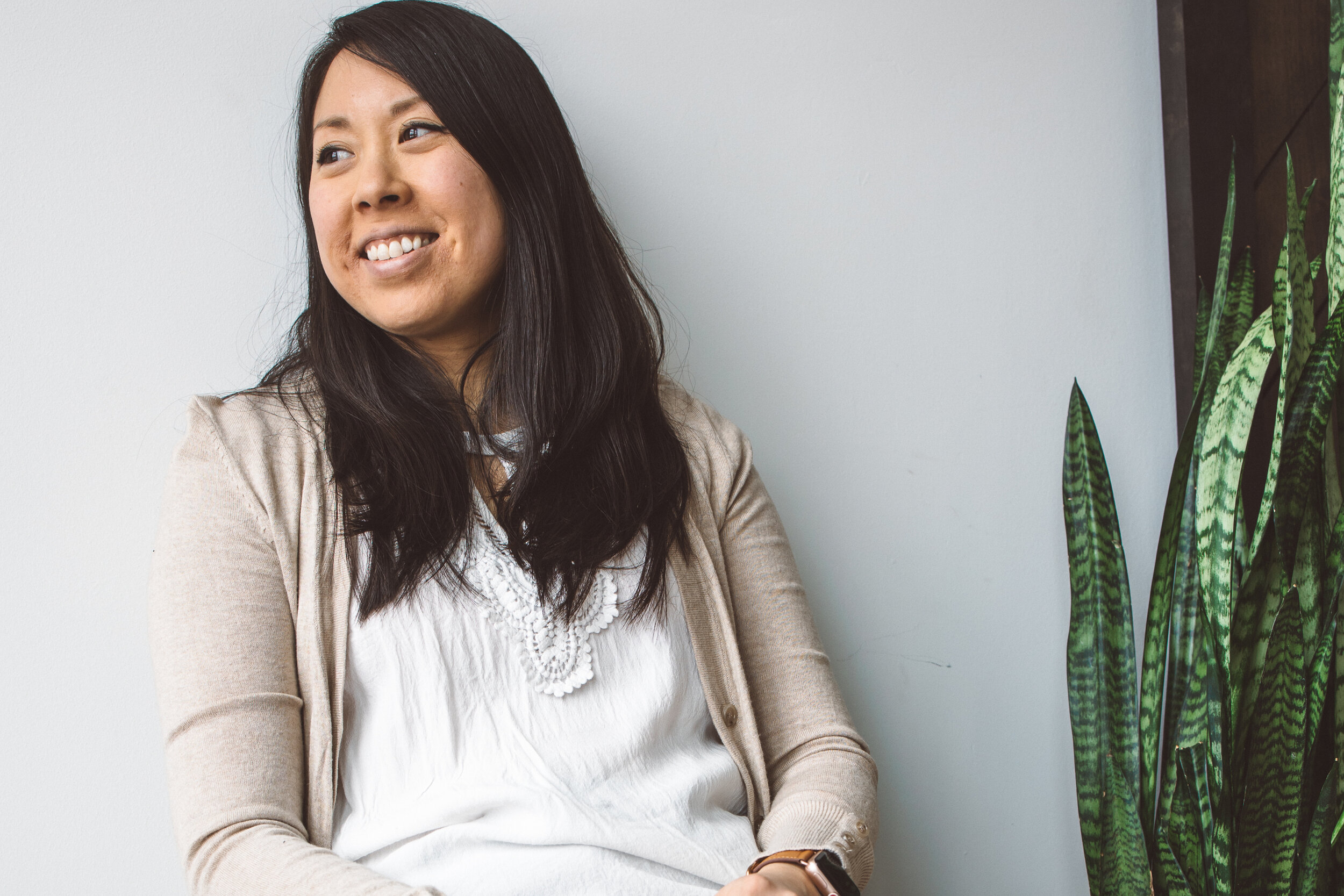Every Dollar Counts
“Is minimalism just another bandaid on a bullet hole?”
We walked out of watching Michael Moore's Fahrenheit 11/9 last night, angry and dejected, with next-to-no faith for our country because of the dirty money behind our politics.
We felt small, insignificant, unable to enact change in any meaningful way.
It seemed to us that our votes don't count. And that all it really comes down is money. The wealthy minority controls everything—politics, the economy, the earth's health.
In talking about money in the car ride home, Chris talked me down and reminded me that while our votes may not count, our dollars do. Every dollar we spend is a small vote towards the type of world we want to live in. Every dollar counts.
Pin for later
Every dollar counts - how to make your voice heard in a society where money matters most | ethical and conscious consumerism on Hello Brio
As a person who focuses on trying to live an intentional life, I admittedly keep my ears and brain out of political and societal topics. Keeping up with the news rarely brings me joy. In fact, it normally induces anxiety.
But no matter what our intention, we are all still consumers.
So it got me wondering: are our drops of discussion surrounding minimalism, mindfulness, and sustainable living yet another pretty flower designed by the system in order to keep us distracted from the harsh realities of life?
Yes, sometimes.
A well-intentioned idea or philosophy can be leveraged by governments and big corporations in order for them to capitalize on the idea. Think: greenwashing.
And someone hungry for information on minimalism or mindfulness may pour money or attention into the idea, guided by the core idea but drawn to the flashier, more prescriptive solutions that will help make them happier instantly.
Ultimately we have to take every idea with a grain of salt and consider the source of information and our intention with what we do with that information.
All I’m trying to say is: even though consuming content about intentional living is probably better for the soul than reading about politics and news, it can still be tricky.
Anyway: This Isn't About Politics
I'm not going to get too political here, for a few reasons. One, being that I know next-to-nothing about politics. Just like anyone, I have my beliefs and my opinions on things, but I can be argued into a corner quicker than a microwave melts butter.
Also, this blog is not a platform for my political agenda. It is, however, a place for me to express my views surrounding how to be a better member of society in general by living an intentional life, in the hopes of inspiring others.
That said, every once in a while we have to stop to talk about big issues, even if it's prompted by "educating" ourselves with heavy-handed documentaries made by razor-smart people who use their skills to share their beliefs.
Back to consumption on all ends of the spectrum: let's stop to think for a minute on what mass media pushes us towards.
Worldly Distractions are Pretty Scary
There are several levels of consumerism. As Americans, we're trained to want what thy neighbor has (and flaunts on social media).
On a basic level, the average American is preoccupied with buying a lot, and buying often.
New is better.
This season's styles are better.
This week's sales are better.
This sweater/notebook/pair of shoes/new laptop will totally make me feel like the #ladyboss I truly am inside.
Then, in another never-ending battle, we're taunted with commercials and photos of delicious drippy cheese and deep fried non-food. Then conversely, we're "motivated" with ultra-thin and toned fitness buffs who sell books and videos and promise this time you'll lose the weight and get the body you really want and deserve. And when we fail, we feed into the commercialized and over-processed foods again because they help us feel better for our failures.
Over-consumption aside, even minimalism and ethical fashion can be persuasive materialism with a twist, as I alluded to earlier.
Minimalism can sometimes feel like a cult. Get rid of your junk (sometimes by haphazardly throwing it all into a landfill). Then replace it with a select few expensive pieces.
Ethical fashion has the ability to make you feel like you aren't doing enough to save the planet. Buy this ethical product. No—they're not ethical enough. Buy THIS product instead. Heck, revamp your entire closet with this season's socially-responsible and organic fair trade pieces.
Even though leftist ideas can sometimes be demonized, let's not forget that the most peoples’ goals behind healthy intentional living are positive. Just remember to approach things with a good level of skepticism.
And you don’t have to be perfectly minimal or perfectly ethical overnight. Even if you choose to take small steps towards this type of lifestyle, you will be contributing to the greater good.
Small Changes Grow Exponentially Over Time
In a recent podcast by Sean McCabe, he talked about how incremental daily changes can grow exponentially over time, for good or for worse.
Eat that cheeseburger-fries-soda combo every day and in 6 months you'll probably feel pretty shitty.
Go for a walk for 30 minutes every day and in 6 months you will have paved a path where you have a healthy habit. You might've even started to run during that time, and years down the road you'll be much healthier for the exercise routine.
Buy your clothes and groceries at a big box discount store and you may be voting for a society that promotes waste, bad factory conditions, and supports larger (and potentially evil) corporate agendas.
Make conscious purchasing decisions (hi, ethical)—and make less of them (hello, minimalism)—and you're using your hard-earned dollars to vote for a system that is trying to be as responsible as possible.
Related: Budget-friendly ethical fashion with a stylist
Every Dollar Counts
If the US isn't about democracy, but is about money, then we have to use the only form of true voting we have: money.
Every dollar you spend counts. In a nation where your vote may be fudged or disregarded altogether, how you spend your money is a vote for the type of world you want to live in. These decisions today will impact your children and generations to come.
The stuff we consume boils down to supply and demand. If there's no demand, unethical corporations will have no choice but to make less supply.
No—I'm not recommending you give up voting altogether—we all saw where assuming one party would win, and not showing up for the polls, got us in 2016.
I'm just reminding you that we all vote every day whether we think about it or not. Don't try to be perfect about it—that's nearly impossible.
Educate yourself on the purchases you're making and how they impact society at large. Make intentional decisions with how you spend your money.
Eventually, our small, responsible spending decisions will pay off.
How do you choose to spend your money? Do you shop small? Choose second-hand over brand new? Discuss below.
Cover photo by ika dam



![How I journal on my iPad in Notability [Updated for 2024]](https://images.squarespace-cdn.com/content/v1/603fd2e6b89a792feb000f9c/1675357907805-TSRYCEN9KUN66DNMHOLN/IMG_6041.JPG)








